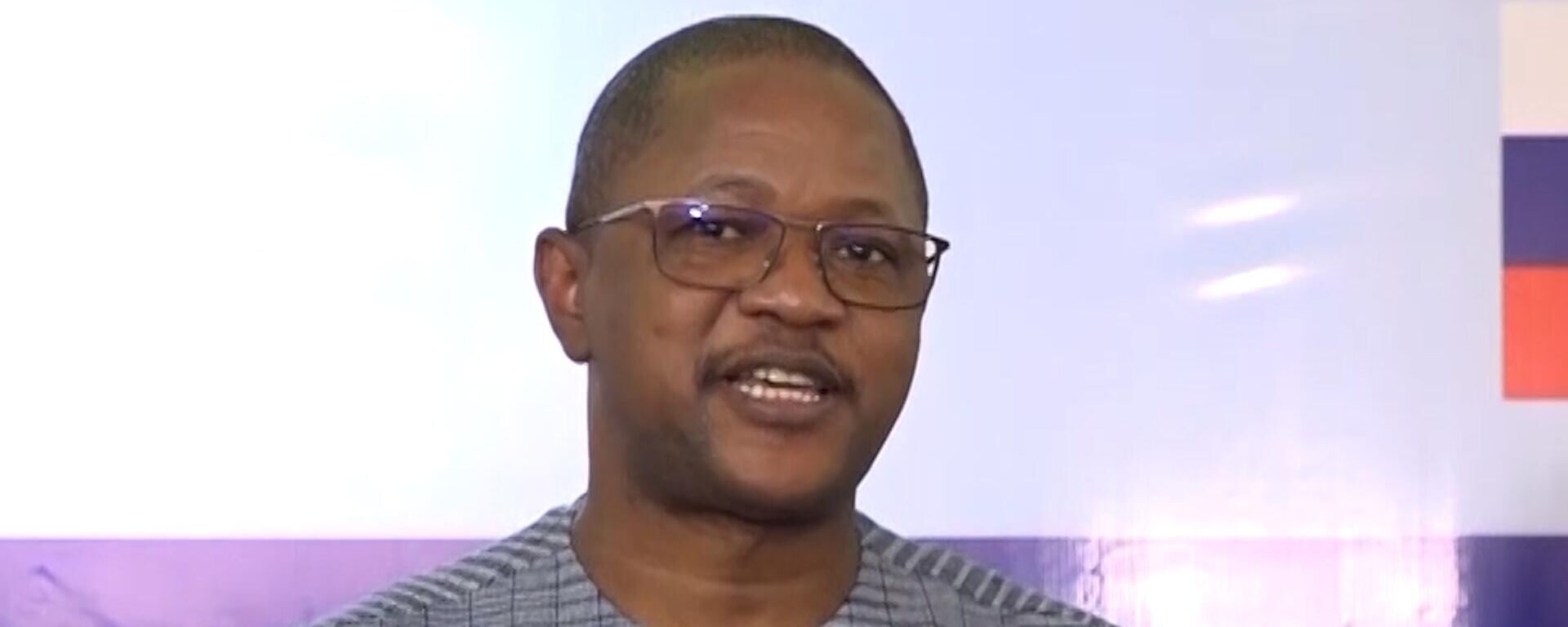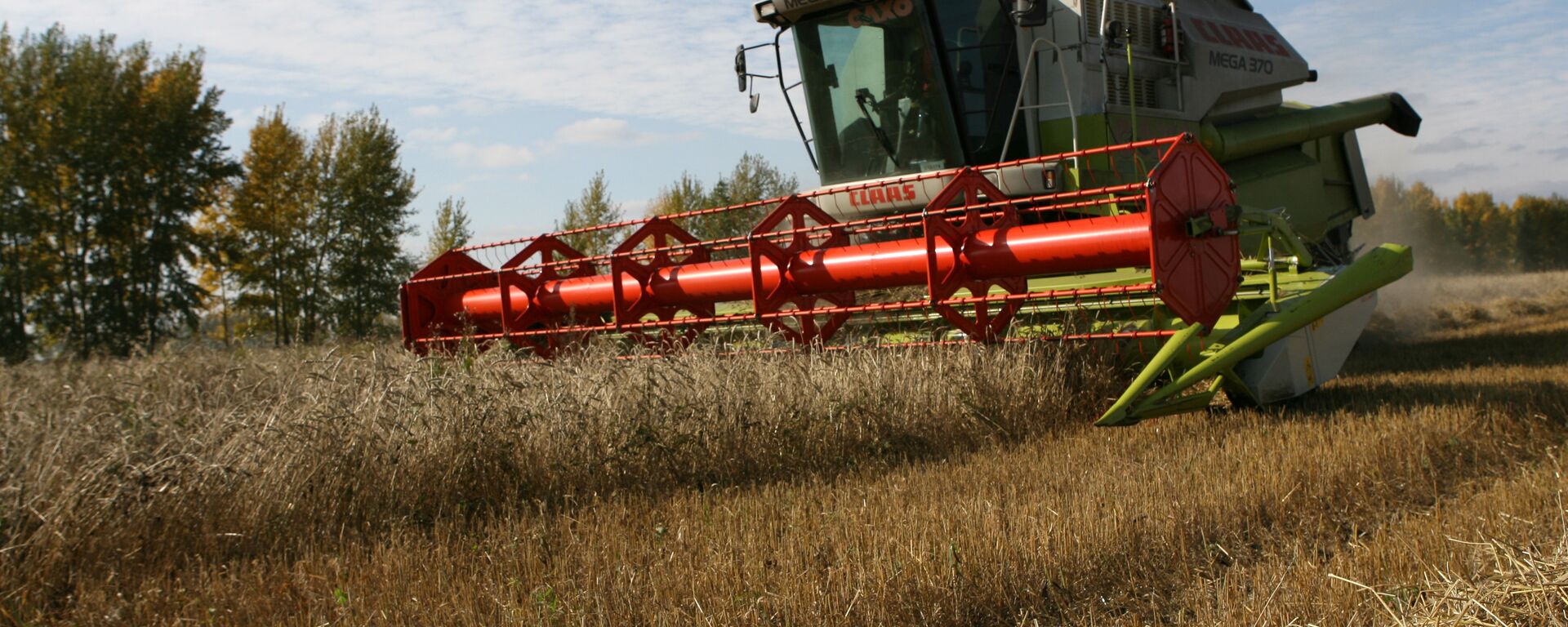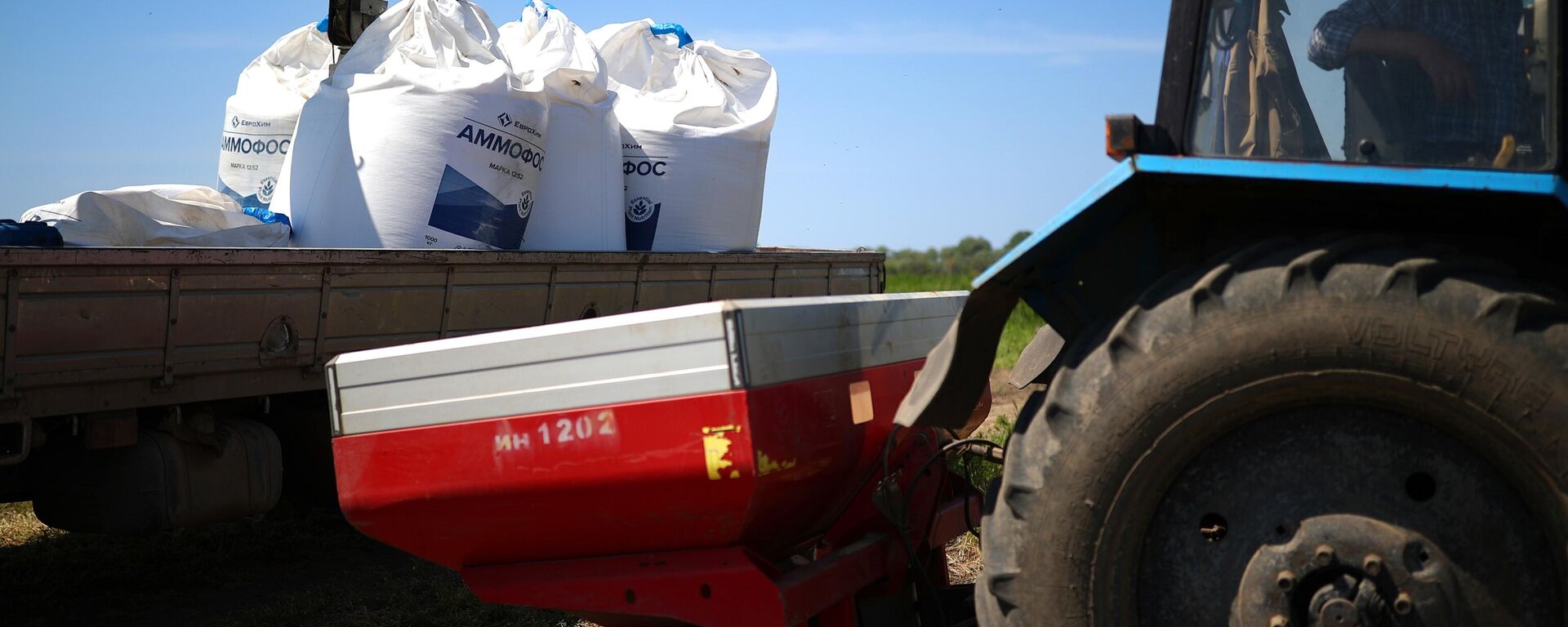https://en.sputniknews.africa/20231230/ussrs-101st-anniversary-african-professor-reflects-on-past--present-of-african-russian-ties-1064381907.html
USSR's 101st Anniversary: African Professor Reflects on Past & Present of African-Russian Ties
USSR's 101st Anniversary: African Professor Reflects on Past & Present of African-Russian Ties
Sputnik Africa
On the occasion of 101st anniversary of the establishment of the USSR, Professor Kamya Deogratias, a Visiting Professor at the Moscow State Linguistic... 30.12.2023, Sputnik Africa
2023-12-30T12:37+0100
2023-12-30T12:37+0100
2023-12-30T12:37+0100
sub-saharan africa
russia-africa cooperation
russia
soviet union (ussr)
uganda
moscow state linguistic university (mslu)
east africa
education
west
neocolonialism
https://cdn1.img.sputniknews.africa/img/07e7/0c/1e/1064383510_0:1810:2048:2962_1920x0_80_0_0_fe1b968b747b60f4decac70d6615fdd8.jpg
Reflecting on his educational journey, Professor Kamya Deogratias, a member of the Soyuzonline organization that connects former Soviet graduates worldwide, emphasized the profound influence of Soviet education on his career as an academic and educator.Recounting his university studies in Uganda and subsequent pursuit of a Master's degree in Philology at MSLU, Deogratias attributed his unique position as a skilled translator of Russian to the invaluable education he received in the Soviet Union (USSR). The professor noted that the importance of this expertise has earned him trust and recognition in both Russia and Uganda, leading to numerous invitations to lecture on various subjects at universities in both countries.Recalling his first impressions upon arriving in the USSR, Deogratias spoke of the stark differences from his life in Uganda and expressed his admiration for the organization and coordination evident in every aspect of his new environment. From the transportation systems to the warmth of the people, he underscored the welcoming atmosphere he encountered.He fondly remembered the novelty of experiencing different seasons and the kindness of the Russian people, particularly during his first encounters with the icy streets of winter.Professor Deogratias further elaborated on the historical ties between the USSR and African countries, noting the shift from the ideology of communism and socialism during the Soviet era to Russia's contemporary approach in the context of a multipolar world.He emphasized mutual benefit, respect and the promotion of fundamental human rights as the basis for the development of relations between Moscow and African countries. The distinguished scholar also underscored the need for cooperation to improve the quality of life, promote economic growth and facilitate democratic governance across the African continent.Professor Deogratias also delved into the multifaceted nature of Russia's engagements with African countries, drawing attention to the historical ties that characterized the USSR's support for African nations.Commenting on present initiatives such as the provision of free grain to African countries, he acknowledged the potential for these actions to be interpreted as a continuation of the friendly relations established during the Soviet era. However, he also cautioned against possible misinterpretations in the context of recent political developments in the global arena.In response to concerns about the collective West's reception of strengthened Africa-Russia relations, the professor offered a nuanced explanation, citing historical exploitation and economic implications.While discussing the historical context of Russia's support for African countries in their struggle against colonialism, Deogratias acknowledged contemporary characterizations of Western engagement with Africa as neocolonialism.Drawing on his experience and perspective, he articulated the need for Moscow to play a role in supporting Africa's efforts to address these challenges by fostering mutually beneficial relationships and providing essential assistance.Professor Deogratias offered clear recommendations on how Russia can contribute to countering Western neo-colonial policies in Africa, outlining pragmatic steps, including the implementation of cooperative programs between Russia and African countries and the establishment of a strong presence in various fields.He also highlighted the promotion of cooperation in education and culture and the creation of an environment conducive to political peace on the continent as key factors in the fight against neo-colonialism.
https://en.sputniknews.africa/20231229/russia--burkina-faso-in-2024-a-year-when-mutual-cooperation-really-takes-off-says-burkinabe-fm-1064371396.html
https://en.sputniknews.africa/20231229/ship-with-25000-tonnes-of-russian-wheat-for-zimbabwe-arrived-at-mozambican-port-of-beira-reports-1064371814.html
https://en.sputniknews.africa/20231225/russia-to-launch-scheme-to-support-engineering-exports-to-africa-in-2025-trade-minister-says-1064298333.html
russia
soviet union (ussr)
uganda
east africa
west
Sputnik Africa
feedback@sputniknews.com
+74956456601
MIA „Rossiya Segodnya“
2023
Muhammad Nooh Osman
https://cdn1.img.sputniknews.africa/img/07e7/04/0a/1058467512_0:0:1280:1280_100x100_80_0_0_ec723833bcbfcaed2e21952965ad99e4.jpg
Muhammad Nooh Osman
https://cdn1.img.sputniknews.africa/img/07e7/04/0a/1058467512_0:0:1280:1280_100x100_80_0_0_ec723833bcbfcaed2e21952965ad99e4.jpg
News
en_EN
Sputnik Africa
feedback@sputniknews.com
+74956456601
MIA „Rossiya Segodnya“
Sputnik Africa
feedback@sputniknews.com
+74956456601
MIA „Rossiya Segodnya“
Muhammad Nooh Osman
https://cdn1.img.sputniknews.africa/img/07e7/04/0a/1058467512_0:0:1280:1280_100x100_80_0_0_ec723833bcbfcaed2e21952965ad99e4.jpg
russia-africa cooperation, russia, soviet union (ussr), uganda, moscow state linguistic university (mslu), east africa, education, west, neocolonialism, humanitarian aid
russia-africa cooperation, russia, soviet union (ussr), uganda, moscow state linguistic university (mslu), east africa, education, west, neocolonialism, humanitarian aid
USSR's 101st Anniversary: African Professor Reflects on Past & Present of African-Russian Ties
Muhammad Nooh Osman
Writer/Editor
On the occasion of 101st anniversary of the establishment of the USSR, Professor Kamya Deogratias, a Visiting Professor at the Moscow State Linguistic University (MSLU) in Russia and a Lecturer at Makerere University in Uganda, shared insights into the impact of Soviet education on his life and his views on the future of Africa-Russia relations.
Reflecting on his educational journey, Professor Kamya Deogratias, a member of the Soyuzonline organization that connects former Soviet graduates worldwide, emphasized the profound influence of Soviet education on his career as an academic and educator.
Recounting his university studies in Uganda and subsequent pursuit of a Master's degree in Philology at MSLU, Deogratias attributed his unique position as a skilled translator of Russian to the invaluable education he received in the
Soviet Union (USSR). The professor noted that the importance of this expertise has earned him trust and recognition in both Russia and Uganda, leading to numerous invitations to lecture on various subjects at universities in both countries.
"I can't imagine a life, let alone a good future in my country, Uganda, without the role and influence of Soviet education in my career," Prof. Deogratias told Sputnik Africa. "I am now the only experienced and respected translator doing all the translations from and into Russian at the largest university in Uganda. I couldn't have done better without the Soviet education."
Recalling his first impressions upon arriving in the USSR, Deogratias spoke of the stark differences from his life in Uganda and expressed his admiration for the organization and coordination evident in every aspect of his new environment. From the transportation systems to the warmth of the people, he underscored the welcoming atmosphere he encountered.
He fondly remembered the novelty of experiencing different seasons and the kindness of the Russian people, particularly during his first encounters with the icy streets of winter.
"The other thing I remember is the Russian girls. They were so beautiful and nice and that was my biggest weakness!" the professor admitted. "The experience of my first winter was indescribable! I can't remember how many times I fell on the slippery ice in the street, and interestingly, the Russians never laughed at me, but always helped me back to my feet without saying a word! That is something I will never forget."
Professor Deogratias further elaborated on the historical ties between the USSR and African countries, noting the shift from the ideology of communism and socialism during the Soviet era to Russia's contemporary approach in the context of a
multipolar world.
He emphasized mutual benefit, respect and the promotion of fundamental human rights as the basis for the development of relations between Moscow and African countries. The distinguished scholar also underscored the need for cooperation to improve the quality of life, promote economic growth and facilitate democratic governance across the African continent.
"It is important to note that the world is rapidly evolving," he told Sputnik Africa.
Professor Deogratias also delved into the multifaceted nature of
Russia's engagements with African countries, drawing attention to the historical ties that characterized the USSR's support for African nations.
Commenting on present initiatives such as the provision of
free grain to African countries, he acknowledged the potential for these actions to be interpreted as a continuation of the friendly relations established during the Soviet era. However, he also cautioned against possible misinterpretations in the context of recent political developments in the global arena.
In response to concerns about the collective West's reception of strengthened Africa-Russia relations, the professor offered a nuanced explanation, citing historical exploitation and economic implications.
"Africa has been exploited for a long time, and some may be reluctant to relinquish their hold on it. However, losing Africa would have significant economic consequences [for the West]," Prof. Deogratias said, underscoring the strategic value of Africa in global dynamics. "As President [Vladimir] Putin once indicated, he doesn't have to fight France, – depriving France of its former colonies would be enough to weaken it'."
While discussing the historical context of Russia's support for African countries in their struggle against colonialism, Deogratias acknowledged contemporary characterizations of Western engagement with Africa as neocolonialism.
"Although we have achieved political independence, we remain economically tied to the West, whose exploitative tendencies have not ceased. Indirect policies instituted by them continue to have devastating effects on African economies," the academic said.
Drawing on his experience and perspective, he articulated the need for Moscow to play a role in supporting Africa's efforts to address these challenges by fostering mutually beneficial relationships and providing essential assistance.
Professor Deogratias offered clear recommendations on how Russia can contribute to countering Western neo-colonial policies in Africa, outlining pragmatic steps, including the implementation of cooperative programs between Russia and African countries and the establishment of a strong presence in various fields.
He also highlighted the promotion of
cooperation in education and culture and the creation of an environment conducive to political peace on the continent as key factors in the fight against neo-colonialism.





